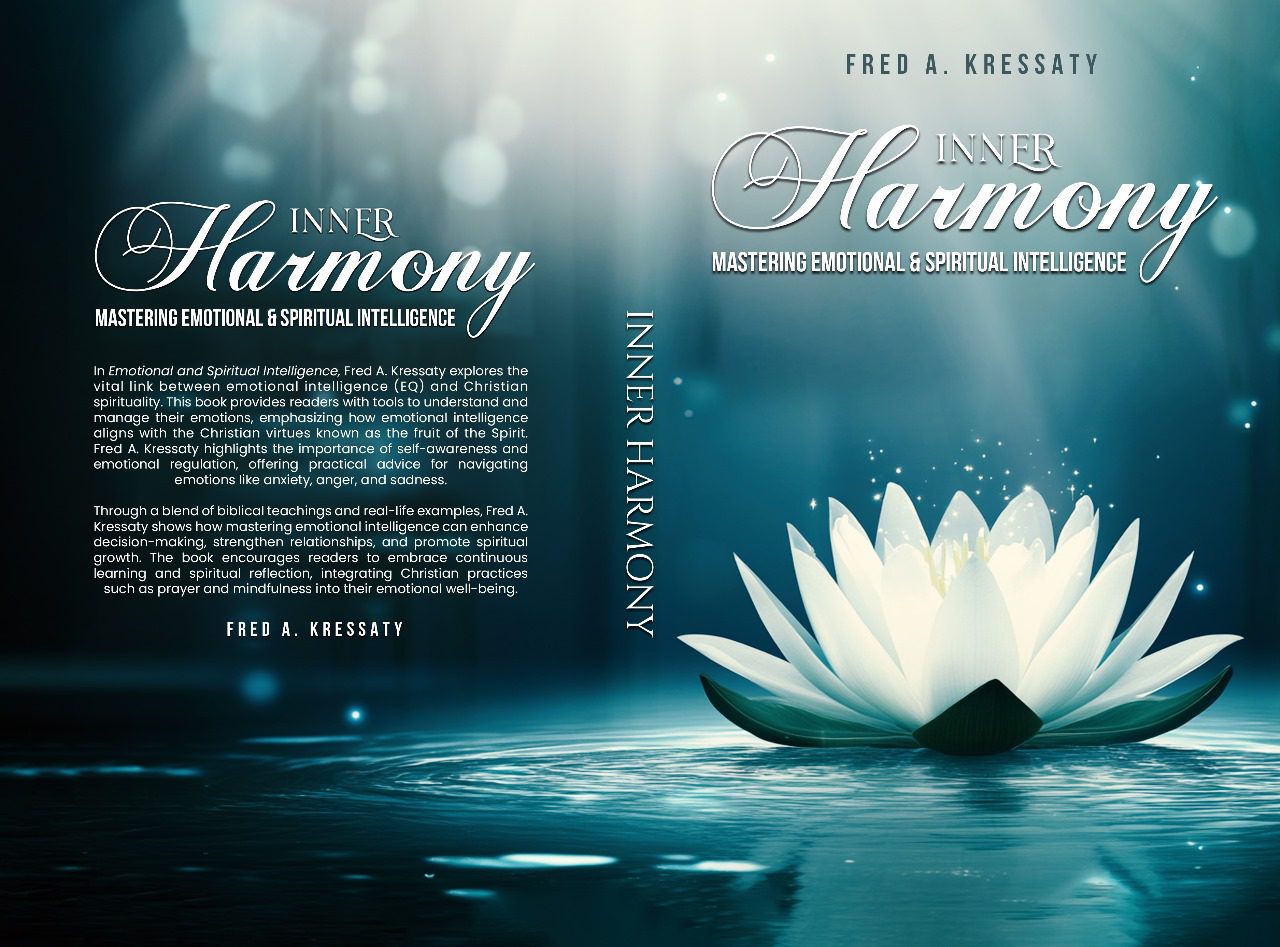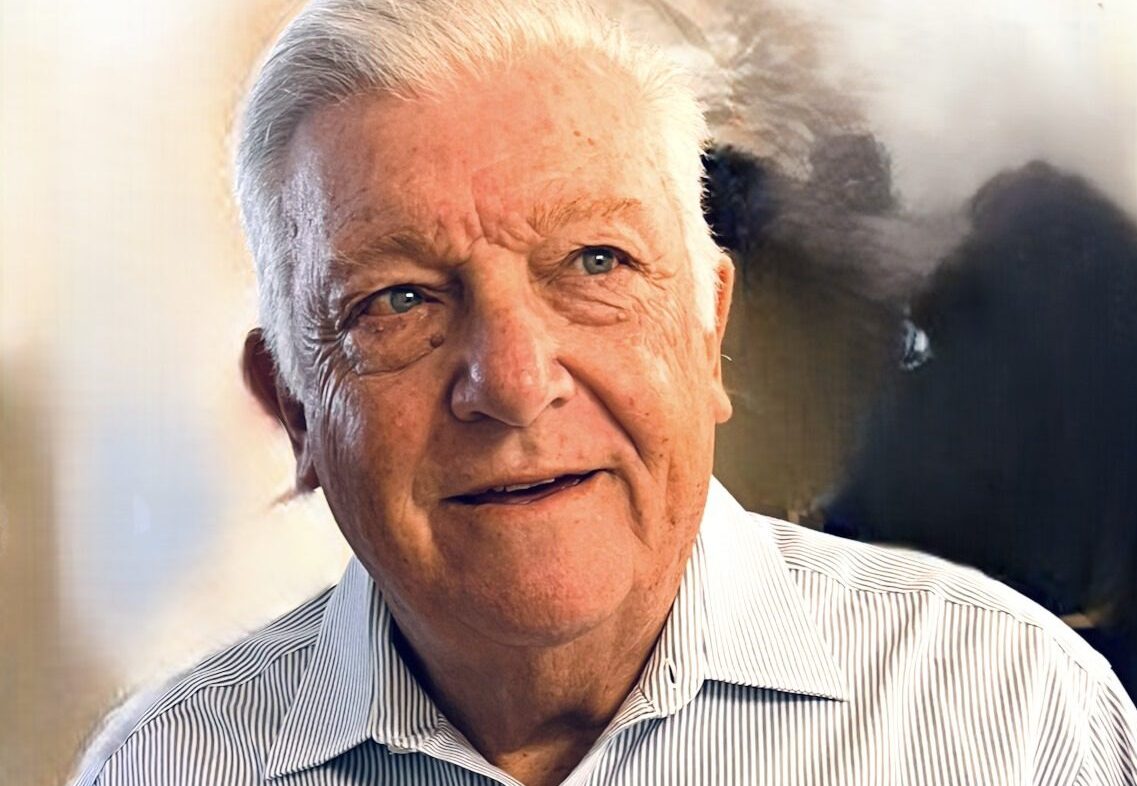Modern life moves quickly. Many people wake up already thinking about what they need to finish, check their phones before breakfast, and fall asleep still worrying about work or family. Inner Harmony: Mastering Emotional & Spiritual Intelligence by Fred A. Kressaty takes a step back from this constant motion. It invites readers to slow down, reflect, and rebuild their emotional and spiritual health through gratitude, forgiveness, and a clear sense of purpose.
Kressaty’s book blends psychology, faith, and practical exercises into one message: peace begins with daily habits. His writing avoids quick fixes or complex theories, focusing instead on simple, steady changes that shape a calmer mind and a more meaningful life.
Gratitude as a Daily Anchor
Kressaty begins with gratitude—not as a polite gesture, but as a habit that changes how the mind works. He explains that taking time to notice small blessings, like a warm meal or a kind word, can shift focus away from constant worry. Gratitude doesn’t remove problems, but it changes how we respond to them.
People who practice gratitude tend to see life as manageable rather than overwhelming. Studies support this, showing that gratitude reduces stress and improves sleep. Kressaty’s view is that gratitude also strengthens emotional intelligence. When people recognize the good in their lives, they become more patient, understanding, and open toward others.
He encourages practical methods like keeping a short gratitude journal or sharing thanks aloud at the end of each day. Over time, these actions create perspective. Gratitude, he writes, is not about ignoring pain—it’s about finding value even in ordinary or difficult moments.

The Quiet Strength of Forgiveness
Forgiveness is another recurring idea in Kressaty’s work. He treats it not as a one-time act, but as a process that frees mental and spiritual energy. Holding on to resentment, he explains, keeps the mind in conflict. Forgiveness, by contrast, allows growth and peace.
The book makes a clear distinction between forgiving and excusing. To forgive someone does not mean approving their behavior; it means choosing not to let the memory dominate one’s emotional life. That distinction is central to emotional intelligence. It reflects awareness, self-control, and compassion—qualities that help people communicate without anger or defensiveness.
Kressaty connects forgiveness to spiritual intelligence as well. He draws from Christian teachings that encourage grace and renewal but frames them in universal terms. Whether through prayer, writing an unsent letter, or reflecting on shared humanity, forgiveness becomes a way to heal both heart and mind.
He also reminds readers that self-forgiveness is part of the same work. People often carry guilt over old choices. Recognizing mistakes and learning from them, he writes, is how emotional maturity develops. It allows people to move forward without self-criticism or shame.
Finding Meaning Beyond Routine
Many of Kressaty’s reflections come back to purpose. He suggests that emotional balance depends not only on how people manage their feelings but also on whether their actions align with their values. A person who understands why they do what they do is less likely to feel lost or exhausted.
Purpose, he writes, does not always come from a grand plan or career. It can be found in serving others, raising a family, teaching, or creating something useful. The key is to connect daily tasks to a larger sense of meaning.
This idea ties emotional and spiritual intelligence together. Emotional intelligence helps individuals stay aware of their thoughts and reactions, while spiritual intelligence helps them see how those reactions fit into a broader view of life. When the two align, people make decisions that reflect both reason and compassion.
Kressaty’s examples are simple: a parent practicing patience after a long day, a manager listening more carefully to their team, or a friend offering forgiveness instead of silence. These actions create meaning not through success, but through understanding.
Everyday Habits That Support Inner Peace
What makes Inner Harmony practical is its focus on habits that anyone can adopt. Kressaty lists activities like mindful breathing, short daily reflections, writing notes of appreciation, and setting small, meaningful goals. Each habit supports self-awareness and calm.
He also highlights the importance of self-care. Rest, healthy boundaries, and time outdoors are not luxuries—they are part of maintaining emotional balance. By caring for themselves, people become more available to care for others.
One of the most helpful lessons in the book is the idea of starting small. Kressaty encourages readers to build one habit at a time rather than trying to change everything at once. Small progress, he writes, adds up over time. This steady rhythm of reflection, gratitude, and compassion becomes a quiet form of strength.
Living With Calm Intention
Kressaty’s writing returns often to the theme of calm living—not as a retreat from responsibility, but as a way to face it with clarity. Emotional and spiritual growth does not remove life’s problems, but it gives people the tools to respond with balance.
Gratitude brings perspective. Forgiveness clears the mind. Purpose gives direction. Together, they form a foundation for living intentionally instead of reactively.
In a world filled with constant information and comparison, these lessons feel practical and refreshing. Kressaty’s voice remains grounded throughout the book, reminding readers that true calm is built from small, consistent actions and a genuine effort to understand both self and others.
About the Author
Fred A. Kressaty is a teacher, counselor, and professional coach with degrees in sociology, business, and family therapy. He has worked in education, management, and counseling, helping individuals and families find direction through life’s challenges. After a near-death experience that changed his outlook, he devoted his career to guiding others toward emotional awareness and spiritual growth.
To Purchase The Book, Visit:
E-book: https://www.amazon.com/Inner-Harmony-Mastering-Emotional-Intelligence-ebook/dp/B0FSGQC233/ref=tmm_kin_swatch_0
Paperback: https://www.amazon.com/Inner-Harmony-Mastering-Emotional-Intelligence/dp/1304106276/ref=tmm_pap_swatch_0
Hardcover: https://www.amazon.com/Inner-Harmony-Mastering-Emotional-Intelligence/dp/1304106209/ref=tmm_hrd_swatch_0































